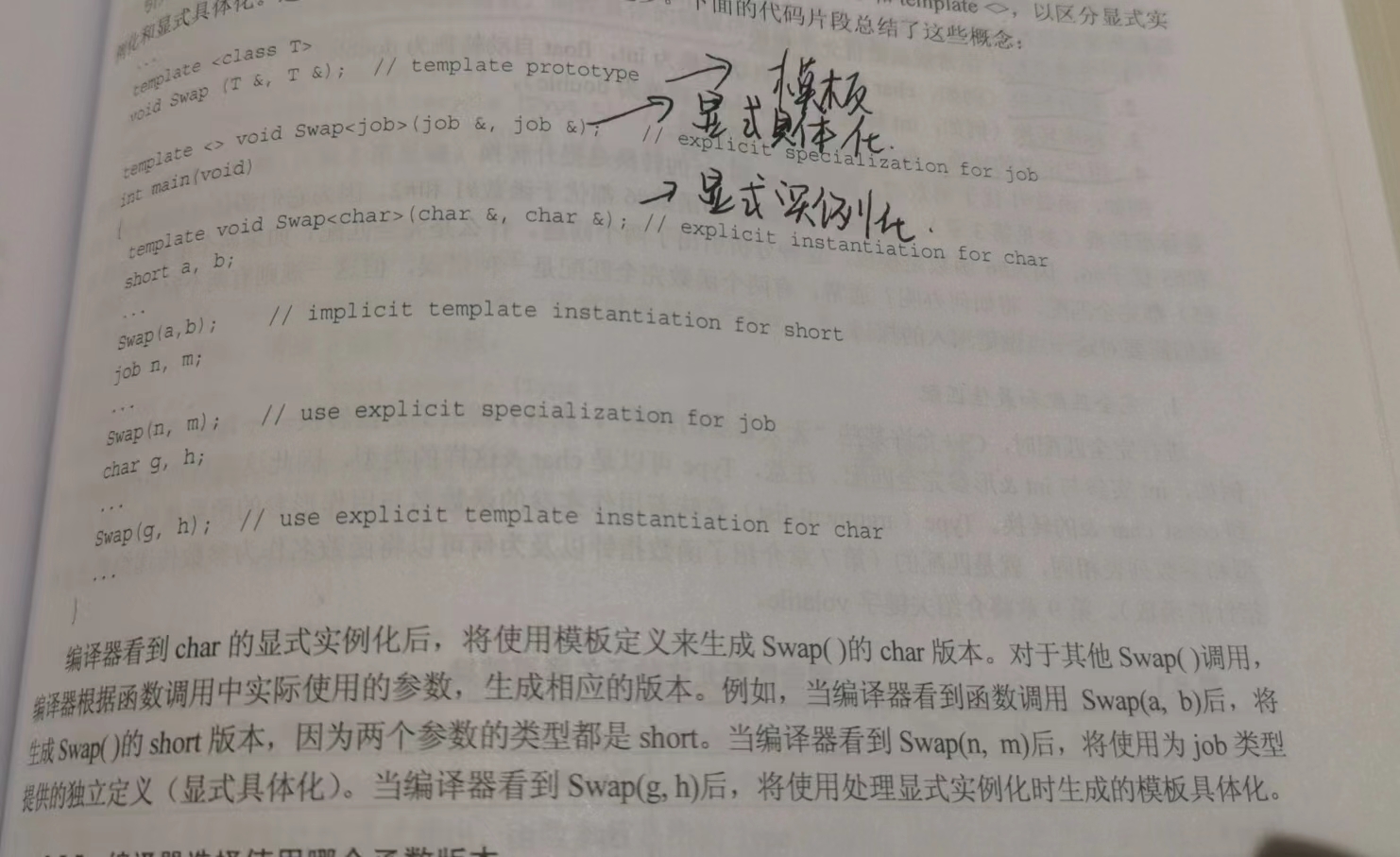1. 引用的本质
int a = 1;
int& copy = a;
//实际是:指针常量
int* const copy = &a; 引用一旦指定后,就不能再作为其他变量的引用
2. 关于const和引用
非引用--无返回||引用-无返回类似
//1.可行
void test(int a);
int a = 1;
test(a);
//2.可行
void test(const int a);
int a = 1;
test(a);
//3.可行
void test(const int a);
const int a = 1;
test(a);
//4.可行
void test(int a);
const int a = 1;
test(a);引用-有返回
//1.可行
int& test(int& a){
return a;
}
int a = 1;
int& temp = test(a);
//2.可行
const int& test(int& a){
return a;
}
int a = 1;
const int& temp = test(a);
//3.可行
const int& test(const int& a){
return a;
}
int a = 1;
const int& temp = test(a);
//4.不可行
int& test(const int& a){
return a;
}
int a = 1;
int& temp = test(a);另外,引用返回值传递给非引用是,以值传递的方式进行传递
3. 默认参数
默认参数,必须从右向左添加默认值
4. 函数重载
1. 如传入参数在重载版本中不存在,则发生错误
2. 引用和类型本身,不能同时出现。如:void test1(int a); void test1(int&a);
3. 入口参数相同,但返回值不同,是错误的,不能发生函数重载。
5. 函数模板
1.typename 和 class 都可以用于模板声明
2. 函数模板 也可以发生重载。
3. 显式具体化模板:
//模板函数
template<class T>
void swap(T& a,T& b){
T temp = a;
a = b;
b = temp;
}
template<> void swap(int &a,int& b)
//对于非int类型调用 模板函数
//对于int数据调用 显示具体化函数4. 显示实例化

对于模板发生重载时,C++需要进行重载解析;
一般首先选择更为具体的函数进行调用。
函数入口参数、
无const引用和const引用,优先选择自己相同类型